Reflections from Hannah on her internship at idalab
Hannah Smith | Internship 2025 Cohort
“This internship suits people who enjoy working across disciplines, from data and coding to project management and client communication“
Could you introduce yourself and tell us a bit about your background?
My background is in biomedical sciences, which I studied during my undergraduate degree. Later, I moved into bioinformatics for my master’s. I’ve always been interested in the intersection of life science and technology, especially in human-focused research.
I first heard about idalab at a seminar called “Artificial intelligence in pharma: between hype, hope, and fear”, which explored AI in life science research, and realized that idalab’s work sits exactly where my interests lie.
What motivated you to pursue an internship at idalab?
I liked that the internship gives you ownership of a full project from day one. You’re not just assisting on someone else’s work, you’re driving a project end-to-end. It combines technical implementation, project management, and client interaction, which is rare in such a short program.
What kind of project did you work on?
I worked for a pharmaceutical client on a competitive intelligence tool that monitors other companies’ drug development pipelines. The goal was to track updates in competing drugs, such as new candidates, phase changes, or discontinued projects, and visualize them in a single dashboard.
This type of information helps pharma companies stay aware of market trends and adjust their R&D strategy accordingly.
How was your onboarding experience?
Very structured. I met my mentor, received training, and joined the project briefing all within the first week. It was a lot of information, but the organization made it manageable and smooth.
What did your work involve day to day?
The first week was about researching and assessing data sources, mostly public pipeline pages of pharma companies. After identifying what data we could use, I built a pipeline to collect and process it and later developed a front-end demo to visualize the results. Also, I was involved in all client interactions.
How was the client interaction?
We had three main calls: a kickoff, an interim check-in, and a final presentation. I co-presented the first and led the later ones. Communicating results directly with the client was challenging but rewarding. The feedback was very positive, and they were interested in expanding the prototype further.
How did the project management look like?
At first, I was working on predefined tasks. But as the project progressed, I started proposing next steps and managing parts of the workflow myself. By the end, I was leading daily stand-up meetings, which are short morning check-ins to align on tasks, and preparing client presentations. It gave me real ownership and confidence.
What tools and technologies did you use?
The main language was Python. I also learned to use Git for collaborative version control. For the front end, we used Streamlit, which made building an app much easier.
We also integrated a large language model (LLM), Gemini, into the data pipeline to identify changes between versions of drug listings, something hard to capture with rule-based logic alone.
How did the project turn out?
We delivered a working prototype with data from three pharmaceutical companies. It showed that our approach works and could be developed into a live monitoring tool. The client was happy with the results and appreciated the proof of concept.
What skills were most important during the internship?
Being open-minded and quick to learn. You work across technical, analytical, and communication areas. Good teamwork and proactive communication are essential because the timeline is short; if you’re stuck, it’s better to ask immediately than lose time. Prioritization is also key to staying on track.
What were your biggest learnings?
I learned a lot technically, but also developed confidence in leading meetings and managing client communication. The internship taught me how to organize a project efficiently, handle fast-paced teamwork, and communicate complex results clearly.
What advice would you give to future interns?
Be curious and proactive. This internship suits people who enjoy working across disciplines, from data and coding to project management and client communication. If you’re open to learning and ready to take initiative, you’ll gain a lot from the experience.
What’s next for you?
I’m finishing my master’s and writing my thesis, which focuses on evolutionary biology in elephants. It’s a different topic, but it shows how broad scientific training can connect to data-driven work.

